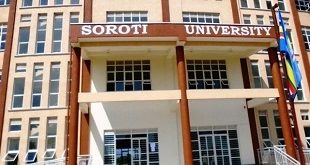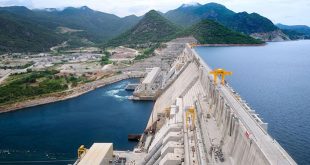
Kampala, Uganda | RONALD MUSOKE | Dr. Albrecht Conze is Germany’s new Ambassador to Uganda. He talked to The Independent’s Ronald Musoke about his first impressions and more.
What have been some of your impressions of Uganda since you arrived in the country?
I am amazed by the stability in Uganda because I am not used to it. I have spent the second half of my diplomatic career in Africa and mostly served in complicated and unstable countries or post-conflict scenarios. May be many Ugandans don’t see it that way because they got used to it – but living in a peaceful country is something wonderful. My previous mission was in war torn Mali. I could not move freely in Bamako. I had a personal protection detail; I drove around in an armoured car, and I could not leave the capital on weekends. So, in Uganda, my first impression was one of disbelief. I could sit outside on the street and have a coffee, or walk through a shopping mall. In the meantime, I have got used to my new freedom, and I am enjoying it.
Any other unique thing you have noticed in Uganda?
I discovered a very important difference between Uganda and many other African countries. Your country never was a colony, it was a protectorate. So even during British rule, Ugandans were able to preserve many features of their identity, often linked to the continuing existence of your kingdoms. The result is that Ugandans do not seem to have a post-colonial complex, something still prevalent in many African countries. This makes cooperation at eye level – the kind of relation on which I have learned to insist between Europe and Africa – much easier.
But to be fair to the other Africans, especially the southern Africans, the Europeans stayed there much longer than in Uganda.
Obviously, those parts of Africa which attracted larger numbers of European settlers had a longer road to go to leave behind the colonial era. Not only southern Africa, but also the French speaking countries are often struggling to finally turn the page. It is an enormous advantage for Uganda to be relaxed about her history and identity. For a German ambassador and long standing friend of Africa, this is a wonderful point of departure for maintaining and deepening constructive relations.
Pres. @KagutaMuseveni recieves credentials from the new #Germany Ambassador to #Uganda H.E Dr. Albrecht Conze at a ceremony @StateHouseUg??? pic.twitter.com/zHN776vP69
— #VisitUganda (@VisitUganda) November 8, 2017
The Uganda-Germany bilateral relations have in the recent past focused on improving the country’s energy and water sectors as well as the rural economy. What will be your main focus?
From what I have seen so far, cooperation in the water sector works very well. We have intervened not only in Greater Kampala but in many of the larger secondary towns. The next major water project co-financed by KFW, the German development bank, will be a pipeline from Gulu to Karuma. It will bring water from the Nile to Gulu, seriously improving this fast-growing city’s water supply. Regarding energy, I was pleased to learn that most of the energy generated in Uganda comes from water. Germany is supporting hydro energy both technically and financially. Moreover, we are also engaged in solar energy. I have just had the opportunity to be part of the opening of the Tororo solar power plant which we supported together with Norway and the EU. Solar power plants should be installed in other places because Uganda has abundant sun. Germany will remain Uganda’s partner in all three sectors you have mentioned.
Uganda wants to ramp up its energy supply portfolio by venturing into nuclear power. Would you recommend nuclear energy for Uganda considering that it is now being phased out in Europe?
Nuclear energy, if generated under the highest possible safety parameters, can be a temporary solution for certain countries. However, I am not sure that it would be a good choice for Uganda. Your country is densely-populated already today, and growing further. Safety is a huge issue in such cases. Worldwide research in energy production has advanced enormously since the turn of the century. We now live in the era of renewables, and they have become the best development choice globally. In my view, nuclear power is very much energy of the 20th century and will be less needed in the 21st. You have many other options to generate energy, both for the national grid and in a decentralized way. Hence, I would think twice before building nuclear energy plants in Uganda.
 The Independent Uganda: You get the Truth we Pay the Price
The Independent Uganda: You get the Truth we Pay the Price





Mr. Ambassador, your observation about coffee, while not new, your stated intention is noble and very considerate. I am a coffee farmer (typical smallholder), the truth be told, it is backbreaking to be reach the point of selling quality dry beens. The vagaries of weather, the “dog eat dog” attitude of middlemen, the not so helpful country coffee authority and the outright capitalist greed, all conspire to keep my size farmer in poverty, thus a big turn off for our youth to venture into an otherwise lucrative farming. Right now a kilo of dry processed coffee is $1.50! I think that value addition to African produced items is a moral obligation for humanity and a lasting sure way of keeping “the undesirable immigrants ” out of Europe. What a win-win solution! Uganda warmly welcomes you Mr. Ambassador, you are a man of upright conscious, we are blessed to have you, we will engage at every given opportunity.